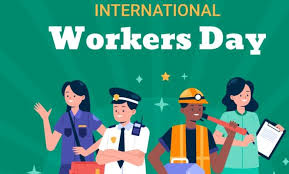OPINION

"WORKERS' DAY IN NIGERIA: A CALL FOR REAL CHANGE, NOT EMPTY PROMISES"
As Nigeria celebrates Workers' Day, the reality for many citizens is far from celebratory. Despite the government’s approval of a N70,000 minimum wage for federal workers, this supposed victory masks the deeper challenges workers continue to face. Economic reforms, like the removal of the fuel subsidy and the devaluation of the naira, have led to a painful adjustment for the population, especially for those without a safety net to cushion the blow.
The new minimum wage, while a significant improvement from the previous N30,000, has been undermined by rampant inflation. In fact, the purchasing power of the N70,000 wage is now lower than what N30,000 could afford just a few years ago. Moreover, the patchy implementation across states has left many local government workers and teachers without the wage increase altogether. This creates a system where workers performing the same roles in different regions are compensated very differently.
The delayed implementation of the wage structure only adds to the frustration. Workers were forced to wait months for the new wage, which started in May 2024 but wasn’t passed into law until July. This bureaucratic lag cost workers vital time and relief during a period of economic hardship.
The problems go beyond wages. The absence of a reliable public transportation system forces workers to spend a large chunk of their income just to get to work. The inadequate healthcare system leaves families vulnerable to financial ruin, and the lack of affordable housing pushes many workers into long commutes from unsafe areas.
Increasing wages alone won’t fix these systemic problems. There needs to be a concerted effort to improve infrastructure, control inflation, and provide safety nets that protect workers from falling into deeper poverty. This should include affordable housing, better public services, and reforms to ensure that workers’ gains aren’t erased by high taxes.
It’s not enough to simply pay lip service to workers' needs. The government must take concrete steps to improve the lives of those who power the economy. Workers deserve a decent standard of living and a system that rewards their efforts fairly. If we continue to ignore the struggles of the workforce, we risk losing sight of what Workers' Day should truly stand for: dignity, respect, and fairness for all who labor to build the nation.
"This represents a significant development in our ongoing coverage of current events."— Editorial Board









